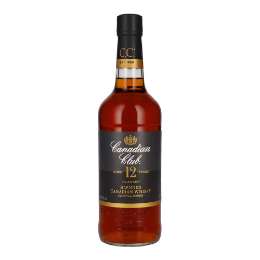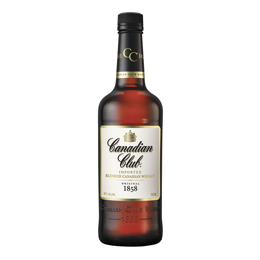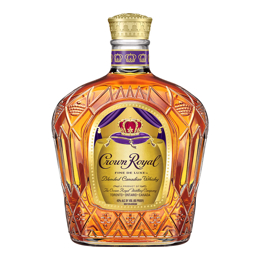Canadian Whisky
Canada is actively involved in whisky production and here are some of the best known labels.
Frequently Asked Questions
01What is Canadian whisky and how does it differ from other types of whiskey?
Canadian whiskey is made within the Canadian territory from any type of grain. It has a minimum alcoholic strength of 40% and is aged for at least 3 years in casks of no more than 700-liter capacity. It is allowed to be enriched, up to 9.09%, with other spirits, such as bourbon, rum or wine! This is the main reason it differs from other nations’ whiskeys. It is the most "open-minded" and at the same time underrated one in the world, since the possibility of this addition skyrockets its pluralism to unimaginable, for the rest of the whiskeys, levels.
02Which are the main taste characteristics of Canadian whiskies?
They are softer on the palate than many other whiskies, with flavors and aromas of maple, vanilla, oak and caramel. Elements of spices are also present, sometimes sweeter, like cinnamon, and sometimes spicy, like pepper.
03What is the production process of Canadian whisky?
Cereals (corn, rye, wheat, barley) in any proportion are malted, fermented and distilled. The spirit is kept in barrels for at least 3 years and then bottled. The addition of coloring or other spirits is optional.
04 What is the difference between Canadian and American whiskey?
American whiskey is made from at least 51% corn and is aged in new, internally charred casks. There is no such rule for Canadian whisky. American whiskey cannot be artificially colored or flavored, in any way. There is no such restriction in Canada, as long as the additions do not exceed 9.09%.
05Who are the most famous Canadian whisky producers?
Best known are Canadian Club Distillery and Crown Royal Distilling Co.
06Which Canadian whisky do you recommend to a first time taster?
Ideal start is the simple form (3 years of aging) of Canadian Club, which is probably the most famous Canadian whisky in the world.
07How does aging affect the taste of Canadian whisky?
Aging turns whisky into a more complex experience. In general, it imparts notes of almond, caramel, smoke and wood. Of course, the type of the barrel matters a lot (new or used, charred or not).
08Which Canadian whisky is best for cocktails?
All are suitable. As with whiskeys from other countries, the use of a deeply aged one will add more complexity to the cocktail.
09 Which are the main producing regions of Canadian whisky and how do they affect its taste?
The Prairies: Located in the western half of Canada (Alberta, Saskatchewan, Manitoba), they produce whisky reminiscent of bourbon. The Maritimes: Located on the Atlantic coast, they produce lighter whiskies, with a strong vanilla element. Quebec: Lies between the two previous regions and produces whisky with a rich body, due to aging in ex wine or ex brandy barrels.
10What are the main criteria for choosing a premium Canadian whisky?
Aging and sophisticated blending are the most important criteria.




